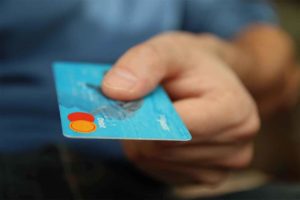For some people financial struggles are due to not bringing in enough money but for many others the problem comes from not wisely spending the money that they do make and arguably that might be everybody’s problem.
So what is the secret to better handling your money that you earn in order to help you reach your financial goals?
1. Track Your Finances
Before you start figuring out how to spend your money more wisely, you first need to understand where it is going. That’s always a mystery, right? Make a budget and track both your income and your expenses. Once you know where your money is going, you can start looking for opportunities where it can be better spent. So start tracking it where are you spending it.
2. Long Term Consequences Of Purchases
Think about the long term benefits and drawbacks of the purchases you are making. Far too many purchases are just impulse decisions of buy something that you don’t need to impress somebody who doesn’t like you anyway. So while this is all great when it’s a dollar chocolate bar at the grocery store, little bit larger problem when you are out there buying cars while trying to impress your neighbors.
Before you buy something, think about how it will affect you in the future. How long does it really going to last? Is it really going to put you in debt that you don’t need and is the value that you are going to get out of it over its lifetime – is that really worth the cost?
3. Only Put Money On A Credit Card That You Can Afford To Pay Off Every Month
Credit cards are inherently a hand rest to your finances after all they’re just a convenient way to be able to pay for things and many cards offer some kind of cash back on purchases, which is nice. However, you should only spend money on your credit card if you are able to pay it off in full at the end of the month.
If you pay off your credit card balance each month, you won’t incur any interest charges and it will essentially be the same as paying cash. If you don’t pay off the balance each month, though, interest of crude can spire out of control.
One of the most effective way to do this, which Dave Ramsey has taught us all, is to just put money in cash in envelopes for the budget items you are going to spend money on during the month. When that cash is gone, then you are done spending money on that category. For example, envelope can be envelope for restaurants spending and you might have $400 in it and when you spend $400 in restaurants in that month, you should stop visiting restaurants until end of the month.
4. Stop Trying To Impress Other People
The average person spends far too much money merely maintain an image; fancy cars, brand-name clothing bought from just the right store… Much of what we buy as more to do just impressing other people than purchasing something we want to enjoy. Keeping up with this routine is expensive, oppressive and unnecessary pursuit. You got to buy things you enjoy but don’t fall prey to the feeling that you have to spend money to impress others.
5. Figure Out What Habits Are Draining Your Budget
After you start tracking your finances, you can begin looking for habits that are draining your budget out. These habits can include expensive hobbies, eating out too much, spending too much money on clothing or a lot of other financial drains you don’t need to incur.
Once you figure out which habits are eating up a large portion of your income, then you can evaluate whether these are really necessary. And as stated before, envelope with cash can really give you a grip on where that money is going.
6. Learn To Value Savings Over Products
Some people are naturally good at saving money and draw enjoyment growing their wealth. For others, money is something that is spent the moment it gets in their hands and anything else feels like a wasted opportunity. If you are in the second camp, you should try to adopt the mentality that value savings over products. In the end, money invested and money saved is almost always going to tune up your life more than money spent on products you’d be uninterested in time.
Here’s the tip: you want to start focusing on what you can make with the money you are saving or you’re never going to save it. And that’s where learning how to invest become so important. If you can make %15 – %20 a year, saving money starts to become pretty interesting. If you are only making %1, why not spending on a refrigerator because you can invest in anyway.
7. Start Investing Early
Spending your money wisely isn’t just about avoiding unnecessary purchases, it is also requirement to take the money that you save and get it into things that will help you reach your financial goals. There’s no such thing as investing too early or getting started to soon or investing too little, even if you have nothing, you can start picking great companies and making a great watch list. So it doesn’t matter how young or how old you are, how little money you have to invest, putting money into quality companies that will grow in value as time goes on is always a wise use of your income.













